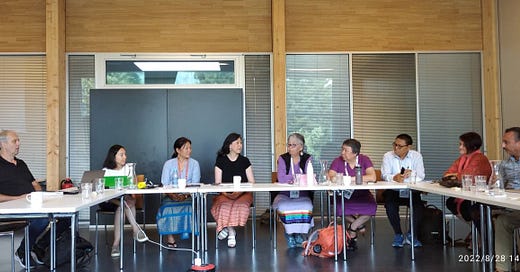WCC Meeting on Climate Justice
I have been part of the World Council of Churches (WCC) Working Group on Climate Justice since 2013. We meet yearly but during the pandemic, we met online. Therefore, it was really wonderful to see my ecumenical friends face to face in Ban Herrenalb, Germany, August 27-29, 2022.
During our meeting, we made plans for COP27 and other future WCC Assembly w…
Keep reading with a 7-day free trial
Subscribe to Loving Life to keep reading this post and get 7 days of free access to the full post archives.




